The Leicester Institute for Advanced Studies
People
LIAS team
Professor Clare Anderson - Director
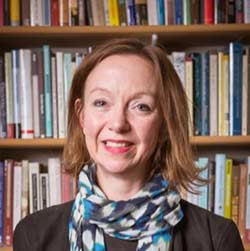 Professor Clare Anderson is interested in the histories and legacies of imperial punishment and forced mobility. She has led large multi-disciplinary and interdisciplinary projects funded by the ERC, ESRC and BA, focused on prisons and penal colonies in South America, the Caribbean, Africa, the Indian Ocean, Asia, Australasia and the Pacific. Her current projects are exploring the impacts of colonialism on mental health and substance abuse in Guyana’s jails (ESRC GCRF), and patterns of descent among African and Asian convicts in the former colonies of the British and French Empires (Leverhulme Trust). Clare has previous and ongoing collaborations with partners and stakeholders from government, government agencies, NGOs and the heritage sector. She is editor of the Journal of Colonialism and Colonial History, and an enthusiastic supporter of a large cohort of postgraduate and postdoctoral researchers.
Professor Clare Anderson is interested in the histories and legacies of imperial punishment and forced mobility. She has led large multi-disciplinary and interdisciplinary projects funded by the ERC, ESRC and BA, focused on prisons and penal colonies in South America, the Caribbean, Africa, the Indian Ocean, Asia, Australasia and the Pacific. Her current projects are exploring the impacts of colonialism on mental health and substance abuse in Guyana’s jails (ESRC GCRF), and patterns of descent among African and Asian convicts in the former colonies of the British and French Empires (Leverhulme Trust). Clare has previous and ongoing collaborations with partners and stakeholders from government, government agencies, NGOs and the heritage sector. She is editor of the Journal of Colonialism and Colonial History, and an enthusiastic supporter of a large cohort of postgraduate and postdoctoral researchers.
Dr Kellie Moss - Senior Research Associate
 Kellie works with academic stakeholders across the university to pioneer and manage a diverse portfolio of research activities, commissioned and/or supported by the Institute. In her work as a research associate on several multi and interdisciplinary projects funded by the ERC, ESRC and BA, Kellie continues to work closely with external partners, including NGOs and government organisations. She also has experience of developing, delivering, and supporting various knowledge exchange and impact activities.
Kellie works with academic stakeholders across the university to pioneer and manage a diverse portfolio of research activities, commissioned and/or supported by the Institute. In her work as a research associate on several multi and interdisciplinary projects funded by the ERC, ESRC and BA, Kellie continues to work closely with external partners, including NGOs and government organisations. She also has experience of developing, delivering, and supporting various knowledge exchange and impact activities.
Charlotte Rose King - Business Manager
 As Business Manager, Charlotte provides support to the institute such as; building and nurturing partnerships, project development, reporting, and monitoring the overarching budget. Charlotte has recently completed her MA in the School of Media, Communications and Sociology; exploring the intersection between HIV and social narratives in Majority World contexts.
As Business Manager, Charlotte provides support to the institute such as; building and nurturing partnerships, project development, reporting, and monitoring the overarching budget. Charlotte has recently completed her MA in the School of Media, Communications and Sociology; exploring the intersection between HIV and social narratives in Majority World contexts.
Priyanka Ferreira - Administrative Assistant (Tuesdays)
Priya provides operational support to LIAS one day per week, assisting with the effective delivery of our full range of activities.
Advisory Board
Professor Vicki Bruce (Chair)
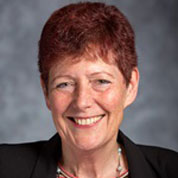 Professor Dame Vicki Bruce is an experimental psychologist (now Professor Emerita at Newcastle University), whose research has focussed on how humans perceive and recognise faces. She was Deputy Principal for Research at the University of Stirling (1995-2002) and then Vice Principal and Head of the College of Humanities and Social Science at the University of Edinburgh (2002-2008) before returning to her roots in the North East. She has held many roles within research councils and funding councils, most recently serving on the Stern review panel which developed the framework which guided REF2021. She is a Fellow of the British Academy, and of the Royal Society of Edinburgh, and an Honorary Fellow of the British Psychological Society.
Professor Dame Vicki Bruce is an experimental psychologist (now Professor Emerita at Newcastle University), whose research has focussed on how humans perceive and recognise faces. She was Deputy Principal for Research at the University of Stirling (1995-2002) and then Vice Principal and Head of the College of Humanities and Social Science at the University of Edinburgh (2002-2008) before returning to her roots in the North East. She has held many roles within research councils and funding councils, most recently serving on the Stern review panel which developed the framework which guided REF2021. She is a Fellow of the British Academy, and of the Royal Society of Edinburgh, and an Honorary Fellow of the British Psychological Society.
Professor Andrea Cooper
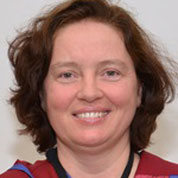 Andrea Cooper is Professor of Cellular Immunology and Dean of Research for the College of Life Science at the University of Leicester. Her work helps define the mechanisms that mediate initiation, expression, and regulation of immunity within the lung using Mycobacterium tuberculosis as a model infection. This work contributes to the development of working models of individual susceptibility to lung disease and to the development of rationally designed interventions particularly in the realm of vaccine-induced cellular responses. She held the Francis B Trudeau Chair, was Deputy Chair of the Infection and Immunity Board for the MRC and is a founding member of the Collaboration for TB vaccine Design and a member of the TB Vaccine Initiative – both international groups focused on the rational design of vaccines to combat tuberculosis.
Andrea Cooper is Professor of Cellular Immunology and Dean of Research for the College of Life Science at the University of Leicester. Her work helps define the mechanisms that mediate initiation, expression, and regulation of immunity within the lung using Mycobacterium tuberculosis as a model infection. This work contributes to the development of working models of individual susceptibility to lung disease and to the development of rationally designed interventions particularly in the realm of vaccine-induced cellular responses. She held the Francis B Trudeau Chair, was Deputy Chair of the Infection and Immunity Board for the MRC and is a founding member of the Collaboration for TB vaccine Design and a member of the TB Vaccine Initiative – both international groups focused on the rational design of vaccines to combat tuberculosis.
Dr Anna K Dickson
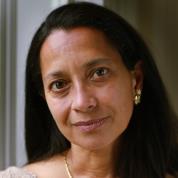 Dr Anna K Dickson is the Director of Research for the House of Commons. As Director she has strategic oversight of the research output of 100 researchers responding to requests for information from MPs and proactively publishing legislative briefing papers and other research output. She is also responsible for quality assurance processes and editorial policy of the Research team.
Dr Anna K Dickson is the Director of Research for the House of Commons. As Director she has strategic oversight of the research output of 100 researchers responding to requests for information from MPs and proactively publishing legislative briefing papers and other research output. She is also responsible for quality assurance processes and editorial policy of the Research team.She is currently leading an exciting project to create a Policy, Research and Analysis Community across Select Committee Teams and Researchers in Parliament. As part of this project to encourage collaboration, knowledge exchange in research hubs, the ESRC has funded three academics to increase knowledge of and interaction with external research and help to build centres of excellence.
Since joining Parliament in 2004 she has worked in a variety of roles including in Select Committees and the Procedural Offices.
With an academic background she was previously lecturer in Politics and International Relations at the University of Durham. Her research area was at the intersection of international relations and development studies. She has written on EU development policies and on the politics of international trade in commodities (in particular sugar and bananas).
Anna currently sits on the ESRC Grant Assessment Panel as an external reader.
Professor Simon Gill
Professor Simon Gill is a Professor in the School of Engineering at Leicester and is Dean of Research.
Dr Sarah Inskip
 Dr Sarah Inskip is a Bioarchaeologist whose research focuses on understanding how past changes in human behaviour and social practices have had an impact on health and wellbeing through time. Her early research at the University of Southampton focused understanding the emergence of Islamic identity through examination of physical and burial practices in early Medieval Iberia. While teaching at the University of Leiden, Sarah also began researching the evolutionary history of leprosy using an interdisciplinary approach which combined archaeological, historic and genetic data. This work has been important in revising narratives about the disease origin and spread, as well as highlighting the zoonotic potential for the disease. In 2016, Sarah moved to Cambridge to work in the Wellcome Trust funded 'After the Plague ' project which focused on assessing the long term biological and social impact of the Black Death on the population of Cambridge. In 2020, Sarah was awarded a prestigious UKRI-FLF fellowship to assess the impact of tobacco on the health of Western Europeans from 1600-1900 at the School of Archaeology and Ancient History at Leicester. This project will be the first look at the relationship between changing patterns of disease in the Early modern period and tobacco use practices. Through working with clinicians, we also aim to produce the first evolutionary studies of the impact of tobacco on population health, demonstrating the importance and relevance of archaeology for contextualising and addressing current day health dilemmas.
Dr Sarah Inskip is a Bioarchaeologist whose research focuses on understanding how past changes in human behaviour and social practices have had an impact on health and wellbeing through time. Her early research at the University of Southampton focused understanding the emergence of Islamic identity through examination of physical and burial practices in early Medieval Iberia. While teaching at the University of Leiden, Sarah also began researching the evolutionary history of leprosy using an interdisciplinary approach which combined archaeological, historic and genetic data. This work has been important in revising narratives about the disease origin and spread, as well as highlighting the zoonotic potential for the disease. In 2016, Sarah moved to Cambridge to work in the Wellcome Trust funded 'After the Plague ' project which focused on assessing the long term biological and social impact of the Black Death on the population of Cambridge. In 2020, Sarah was awarded a prestigious UKRI-FLF fellowship to assess the impact of tobacco on the health of Western Europeans from 1600-1900 at the School of Archaeology and Ancient History at Leicester. This project will be the first look at the relationship between changing patterns of disease in the Early modern period and tobacco use practices. Through working with clinicians, we also aim to produce the first evolutionary studies of the impact of tobacco on population health, demonstrating the importance and relevance of archaeology for contextualising and addressing current day health dilemmas.
Dr Himanshu Kaul
 Himanshu Kaul is a Biomedical Engineer whose interdisciplinary research focuses on the integration of computational, experimental, and clinical data/methods to gain systems-level understanding of biological phenomena. His scientific contributions include amendment of the definition of the dynamic reciprocity principle, a virtual asthma patient that predicted the clinical impact of three different asthma drugs on two clinical outcomes, which remains unprecedented in respiratory medicine, and the first computational framework capable of predicting how changes in gene network topology impact tissue patterns. His work on the virtual patient has been recognised as a ‘Virtual Physiological Human Institute Success Story’ and one of the ‘Top 5 Innovations Pioneered at the University of Leicester’. His research has been a focus of multiple media interviews on radio, print, and podcast. Himanshu secured his doctorate from the University of Oxford. In 2021, he joined the University of Leicester as its first Royal Academy of Engineering Research Fellow. Here, he leads an interdisciplinary lab with PhD students focused on research at the interface of engineering, robotics, software development, molecular cell biology, cancer, computational modelling, and criminology.
Himanshu Kaul is a Biomedical Engineer whose interdisciplinary research focuses on the integration of computational, experimental, and clinical data/methods to gain systems-level understanding of biological phenomena. His scientific contributions include amendment of the definition of the dynamic reciprocity principle, a virtual asthma patient that predicted the clinical impact of three different asthma drugs on two clinical outcomes, which remains unprecedented in respiratory medicine, and the first computational framework capable of predicting how changes in gene network topology impact tissue patterns. His work on the virtual patient has been recognised as a ‘Virtual Physiological Human Institute Success Story’ and one of the ‘Top 5 Innovations Pioneered at the University of Leicester’. His research has been a focus of multiple media interviews on radio, print, and podcast. Himanshu secured his doctorate from the University of Oxford. In 2021, he joined the University of Leicester as its first Royal Academy of Engineering Research Fellow. Here, he leads an interdisciplinary lab with PhD students focused on research at the interface of engineering, robotics, software development, molecular cell biology, cancer, computational modelling, and criminology.
Dr Laura Meagher
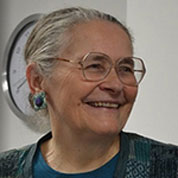 Dr Meagher is an independent consultant in strategic change in research and higher education, specialising in the development and evaluation of innovative approaches including interdisciplinarity, impact-generation and capacity-building, as well as in writing about and providing masterclasses/workshops on these processes. Along with peer-reviewed articles, she has co-authored the book Interdisciplinary Research Journeys: Practical Strategies for Capturing Creativity, available in paperback or free online, Bloomsbury Press.
Dr Meagher is an independent consultant in strategic change in research and higher education, specialising in the development and evaluation of innovative approaches including interdisciplinarity, impact-generation and capacity-building, as well as in writing about and providing masterclasses/workshops on these processes. Along with peer-reviewed articles, she has co-authored the book Interdisciplinary Research Journeys: Practical Strategies for Capturing Creativity, available in paperback or free online, Bloomsbury Press.
Steve O'Connor
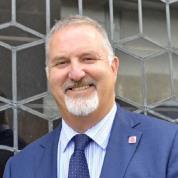 Steve is a passionate advocate of the power of Education and Philanthropy to transform lives and communities locally and worldwide. He has played leading roles in organisations that have courageously and effectively sought to address inequality and exclusion whether improving cancer services in disadvantaged communities at Macmillan Cancer Care, widening access to higher education and the academy for traditionally excluded groups at the Universities of Bristol and Leicester or campaigning to end child poverty as a UK Director at Barnardo’s.
Steve is a passionate advocate of the power of Education and Philanthropy to transform lives and communities locally and worldwide. He has played leading roles in organisations that have courageously and effectively sought to address inequality and exclusion whether improving cancer services in disadvantaged communities at Macmillan Cancer Care, widening access to higher education and the academy for traditionally excluded groups at the Universities of Bristol and Leicester or campaigning to end child poverty as a UK Director at Barnardo’s.
He has been closely associated with the University over four decades as a graduate, senior member of staff and most recently as Special Advisor to the Vice-Chancellor for Advancement and Civic Engagement during which time he collaborated with LIAS in launching the innovative Community Engagement Fund. Steve holds a BA (Hons) from Leicester and is a Certified Member of the Chartered Institute of Fundraising and the Council for Advancement and Support of Education.
Professor Manish Pareek
 Professor Manish Pareek graduated from the University of Birmingham with Honours in Medicine and undertook general medical training before completing an academic specialist training programme in Infectious Diseases and General Medicine in Leicester and London (Imperial College London) funded by the NIHR and MRC. At present he is Professor of Infectious Diseases at the University of Leicester and Honorary Consultant in Infectious Diseases within University Hospitals of Leicester. His primary research interests are: tuberculosis, migrant health, health policy, modelling and health economics. He has undertaken a significant amount of work on the impact of ethnicity on COVID-19 outcomes and is the Chief Investigator of UK-REACH which is examining COVID-19 in healthcare workers.
Professor Manish Pareek graduated from the University of Birmingham with Honours in Medicine and undertook general medical training before completing an academic specialist training programme in Infectious Diseases and General Medicine in Leicester and London (Imperial College London) funded by the NIHR and MRC. At present he is Professor of Infectious Diseases at the University of Leicester and Honorary Consultant in Infectious Diseases within University Hospitals of Leicester. His primary research interests are: tuberculosis, migrant health, health policy, modelling and health economics. He has undertaken a significant amount of work on the impact of ethnicity on COVID-19 outcomes and is the Chief Investigator of UK-REACH which is examining COVID-19 in healthcare workers.
Professor Gowan Dawson
 Gowan Dawson is Professor of Victorian Literature and Culture at the University of Leicester and Dean of Research and Enterprise for the University's College of Social Sciences, Arts and Humanities. He is an Honorary Research Fellow at the Natural History Museum, London, and serves on the grants and library committees of the Royal Society. He has published widely on both nineteenth-century literature and the history of science, including, most recently, Monkey to Man: The Evolution of the March of Progress Image (Yale University Press, 2024).
Gowan Dawson is Professor of Victorian Literature and Culture at the University of Leicester and Dean of Research and Enterprise for the University's College of Social Sciences, Arts and Humanities. He is an Honorary Research Fellow at the Natural History Museum, London, and serves on the grants and library committees of the Royal Society. He has published widely on both nineteenth-century literature and the history of science, including, most recently, Monkey to Man: The Evolution of the March of Progress Image (Yale University Press, 2024).
Dr Morven Shearer
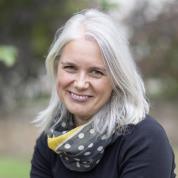 Dr Shearer is Director of the Graduate School for Interdisciplinary Studies at the University of St Andrews. A life scientist originally, she became interested in wider issues of bioethics and science policy and subsequently moved into the area of medical ethics and law. Her areas of interest are trust and fairness, with a policy and practice focus. She chaired the research ethics committee (REC) in the School of Medicine at St Andrews for 8 years, and served as deputy convenor for the University REC. In the education-sphere, her research interests centre around interdisciplinarity, the teaching and assessing of ethics and the ethical review of pedagogic research and scholarship. A former Director of Teaching in the School of Biology and Associate Dean in the Faculty of Science, she values collaboration and led a cross-institutional faculty learning community to explore reflective academic practice.
Dr Shearer is Director of the Graduate School for Interdisciplinary Studies at the University of St Andrews. A life scientist originally, she became interested in wider issues of bioethics and science policy and subsequently moved into the area of medical ethics and law. Her areas of interest are trust and fairness, with a policy and practice focus. She chaired the research ethics committee (REC) in the School of Medicine at St Andrews for 8 years, and served as deputy convenor for the University REC. In the education-sphere, her research interests centre around interdisciplinarity, the teaching and assessing of ethics and the ethical review of pedagogic research and scholarship. A former Director of Teaching in the School of Biology and Associate Dean in the Faculty of Science, she values collaboration and led a cross-institutional faculty learning community to explore reflective academic practice.
Honorary Fellows
Bo Drasar
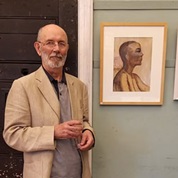 Bo is immensely experienced in national and international policy issues, especially on research, and has a particular interest in furthering interdisciplinary work and advanced study. Throughout his career he has undertaken a variety of roles on government committees including the Microbiology Safety for Food, All Party Parliamentary Water Group and Steering Group on Anthrax vaccine. In addition to his work in the UK he has also been keen to advise and educate on various infectious diseases at an international level.
Bo is immensely experienced in national and international policy issues, especially on research, and has a particular interest in furthering interdisciplinary work and advanced study. Throughout his career he has undertaken a variety of roles on government committees including the Microbiology Safety for Food, All Party Parliamentary Water Group and Steering Group on Anthrax vaccine. In addition to his work in the UK he has also been keen to advise and educate on various infectious diseases at an international level.
In addition to his ability to advise and consult he is also a long standing and enthusiastic advocate of community engagement and has been closely involved in the development of various international distance learning programmes. Bo has devised and successfully implemented engagement strategies for leading universities to cultivate stakeholder involvement with various higher education institutes including those in China, Hong Kong, Thailand, Sudan and Saudi Arabia. Bo has a broad and rich understanding of how research and community engagement agendas inform and support corporate priorities and the strategic development of institutes.
He has published widely, including five books, and has more than 150 original publications together with numerous chapters in books and presentations. From 2003 to 2009 he was Editor for 'Transactions of the Royal Society of Tropical Medicine and Hygiene' and founding Editor of 'International Health' (2009 to present).
Mellissa Ifill
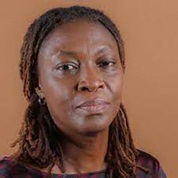 In her role as Deputy Vice Chancellor, Mellissa works with academic stakeholders from across the University of Guyana to pioneer and manage a diverse portfolio of research activities. She also works closely with external partners, including the Guyana Prison Service, NGOs and government organisations, and has experience of developing, delivering, and supporting various knowledge exchange and impact activities. Mellissa is experienced in national and international policy issues and has a particular interest in furthering interdisciplinary work and the development of units of advanced study.
In her role as Deputy Vice Chancellor, Mellissa works with academic stakeholders from across the University of Guyana to pioneer and manage a diverse portfolio of research activities. She also works closely with external partners, including the Guyana Prison Service, NGOs and government organisations, and has experience of developing, delivering, and supporting various knowledge exchange and impact activities. Mellissa is experienced in national and international policy issues and has a particular interest in furthering interdisciplinary work and the development of units of advanced study.
Steve O’Connor
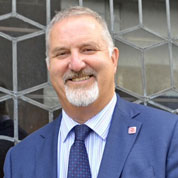 Steve is a passionate advocate of the power of Education and Philanthropy to transform lives and communities locally and worldwide. He has played leading roles in organisations that have courageously and effectively sought to address inequality and exclusion whether improving cancer services in disadvantaged communities at Macmillan Cancer Care, widening access to higher education and the academy for traditionally excluded groups at the Universities of Bristol and Leicester or campaigning to end child poverty as a UK Director at Barnardo’s.
Steve is a passionate advocate of the power of Education and Philanthropy to transform lives and communities locally and worldwide. He has played leading roles in organisations that have courageously and effectively sought to address inequality and exclusion whether improving cancer services in disadvantaged communities at Macmillan Cancer Care, widening access to higher education and the academy for traditionally excluded groups at the Universities of Bristol and Leicester or campaigning to end child poverty as a UK Director at Barnardo’s.
He has been closely associated with the University over four decades as a graduate, senior member of staff and most recently as Special Advisor to the Vice-Chancellor for Advancement and Civic Engagement during which time he collaborated with LIAS in launching the innovative Community Engagement Fund. Steve holds a BA (Hons) from Leicester and is a Certified Member of the Chartered Institute of Fundraising and the Council for Advancement and Support of Education.
Rick Rylance
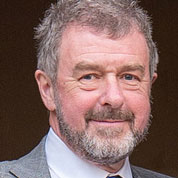 Rick Rylance was, until recently, Chair of the LIAS Advisory Group. A Professor of English, he retired as Pro-Vice Chancellor for Research and Dean of the School of Advanced Study at the University of London in 2021. Prior to that he held several senior academic roles including Executive Chair of Research Councils UK (now UKRI) and CEO of the Arts and Humanities Research Council (AHRC). His research centres on literary and intellectual history and has a particular interest in interdisciplinary research including the psychology of reading.
Rick Rylance was, until recently, Chair of the LIAS Advisory Group. A Professor of English, he retired as Pro-Vice Chancellor for Research and Dean of the School of Advanced Study at the University of London in 2021. Prior to that he held several senior academic roles including Executive Chair of Research Councils UK (now UKRI) and CEO of the Arts and Humanities Research Council (AHRC). His research centres on literary and intellectual history and has a particular interest in interdisciplinary research including the psychology of reading.
He is currently writing the mid-twentieth-century volume in OUP’s Oxford English Literary History series and, among other work, has published books on Roland Barthes, Literature and the Public Good, and a history of nineteenth-century psychology, Victorian Psychology and British Culture 1850-1880.
Among his interests are the weirdness of political behaviour, hill-walking, exotic cities (including Manchester his birthplace), Bob Dylan, opera, and his children and grandchildren.
He is a Leicester graduate.
Gurharpal Singh
 Gurharpal is a political scientist and completed his undergraduate and PhD degrees at the London School of Economics. From 2011-17 he was the Dean of the Faculty of Arts and Humanities SOAS. Currently he is Emeritus Professor of Sikh and Punjab Studies at SOAS. Before moving to SOAS Gurharpal held the Nadir Dinshaw Chair in the School of Philosophy Theology and Religion at the University of Birmingham and was the Deputy Director of the Religions and Development Research Programme (DFID). Prior to this appointment he was the C.R.Parekh Chair in Indian politics at the University of Hull and Principal Lecturer in the School of Humanities De Montfort University.
Gurharpal is a political scientist and completed his undergraduate and PhD degrees at the London School of Economics. From 2011-17 he was the Dean of the Faculty of Arts and Humanities SOAS. Currently he is Emeritus Professor of Sikh and Punjab Studies at SOAS. Before moving to SOAS Gurharpal held the Nadir Dinshaw Chair in the School of Philosophy Theology and Religion at the University of Birmingham and was the Deputy Director of the Religions and Development Research Programme (DFID). Prior to this appointment he was the C.R.Parekh Chair in Indian politics at the University of Hull and Principal Lecturer in the School of Humanities De Montfort University.
He is currently working on two projects: the partition of India and the Sikhs, and Leicester: the making of a multicultural city.
Vijay Sharma
Dr Sharma has been a long-established member of the University of Leicester community for over 10 years and has had voluntary roles on Philanthropy Board, Audit Committee, as a lay member and Vice-Chair of the University Council. She was also the inaugural Chair of the Equity, Diversity and Inclusion Board and has helped support numerous University fundraising efforts, particularly in the area of health. She was given an honorary degree for her contribution and service in 2014. In her role as Pro-Chancellor for community engagement at Leicester, she will act as an ambassador and advocate for the University, supporting campaigns and the Our Citizens strategic theme. She will also engage with stakeholders in various groups including the community locally and internationally, philanthropy and fundraising, outreach and inclusion, and heritage and culture.
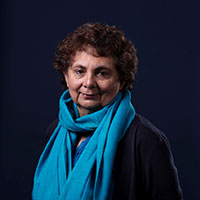 Dr Sharma pioneered the concept of a national public service radio station targeting the Asian diaspora living in Britain within the BBC. Dr Sharma is a trained social worker completing her masters in social work from University of Warwick. She was appointed as the first race relations advisor to the chief executive of Leicestershire County Council before joining the BBC Radio Leicester as an education producer.
Dr Sharma pioneered the concept of a national public service radio station targeting the Asian diaspora living in Britain within the BBC. Dr Sharma is a trained social worker completing her masters in social work from University of Warwick. She was appointed as the first race relations advisor to the chief executive of Leicestershire County Council before joining the BBC Radio Leicester as an education producer.
Fellow alumni
The Leicester Institute for Advanced Studies Fellowship programme is one of the core areas of activity, enabling our researchers to build interdisciplinary collaborations with scholars from the UK and beyond. The cohorts create sustainable partnerships responding to the research landscape. There is currently an alumni list of 30 fellows from over 20 countries.
Associate Fellows
Associate Fellowships are offered to researchers who have demonstrated active research across disciplines at Leicester, or have made a demonstrable contribution to interdisciplinary studies more broadly. The Associated Fellowships programme aims to consolidate and further develop interdisciplinary collaborations, including on issues relevant to broader society. These Fellowships are intended to create partnerships between LIAS and University of Leicester colleagues with shared aims and interests.